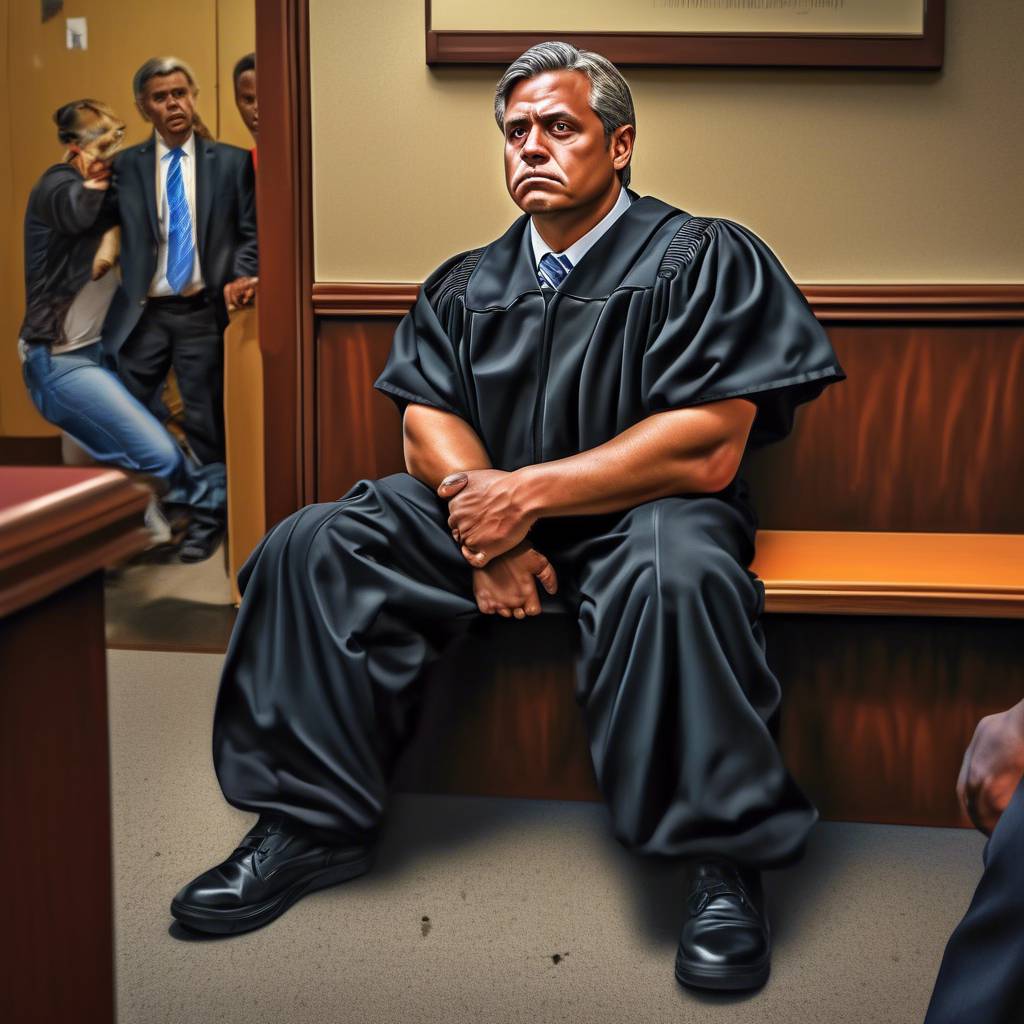A Venezuelan migrant residing in the Bronx was arrested for gun and drug charges while squatting in a home with seven others. Despite prosecutors requesting bail be set, Bronx Criminal Court Judge Eugene Bowen, who ran unopposed in 2023, released Hector Desousa-Villalta on supervised release. This decision by Bowen has raised concerns due to his previous release of two men charged with assaulting a police officer in a Bronx subway station. The men, Kaream McClary and Izayiah Jessamy, were let go with zero bail despite prosecutors asking for $10,000 cash or $30,000 bond. The release of individuals facing serious criminal charges has sparked controversy and criticism from the Police Benevolent Association regarding the criminal justice system’s failures in keeping dangerous criminals off the streets.
Bowen has defended his decisions based on his experience as a public defender at the Legal Aid Society of NYC, where he secured dismissals and favorable outcomes for his clients. This background seems to influence his approach in the courtroom to prioritize the protection of defendants’ rights. In the case of Desousa-Villalta, prosecutors argued for substantial bail amounts due to his possession of a loaded firearm during his arrest in the Bronx and an open attempted murder case in Yonkers. However, the defense pointed out that the Yonkers case had no new court date set, and the victim declined to participate. The Office of Court Administration stated that judges have discretion in bail decisions based on an individualized assessment of a defendant’s risk of flight.
Desousa-Villalta, who was previously released on supervised release, was arrested again at the Bronx house by U.S. Immigration and Customs Enforcement and is facing deportation along with two other migrants. Another individual, Javier Alborno, was also arrested at the home and found in possession of a semi-automatic pistol. Alborno, who had been previously released with no bail on a weapons possession charge in September, this time was sent to Rikers Island jail on $100,000 bail. The presence of these migrants with firearms in the Bronx has raised concerns among NYPD officials, especially in the wake of an armed repeat offender shooting Police Officer Jonathan Diller, who was posthumously promoted to detective.
Chief of Patrol John Chell expressed his frustration at a news conference regarding the repeated confrontations with individuals in possession of guns who should not have them. The suspects in the shooting of Officer Diller, Guy Rivera and Lindy Jones, had extensive criminal histories, leading to questions about how individuals like them continue to have access to firearms. The sources of the guns and drugs found in the Bronx home where the migrants were squatting remain unclear, and it is uncertain whether there are ties to gang activity. The close proximity of these incidents involving armed individuals highlights the challenges faced by law enforcement in ensuring public safety and keeping illegal firearms off the streets. Despite concerns raised by various stakeholders, including law enforcement and community members, the judicial system’s handling of cases involving potentially dangerous individuals remains contentious.
The judges’ discretion in setting bail for defendants has come under scrutiny, especially in cases involving individuals with prior criminal records or pending charges. The decision to release individuals like Desousa-Villalta and Alborno, who were found in possession of firearms, raises questions about public safety and the effectiveness of current bail practices. The impact of these decisions on law enforcement agencies tasked with maintaining public order and protecting communities is significant, as officers express their frustration with encountering armed individuals despite previous criminal activity. The ongoing debate surrounding bail decisions and the release of potentially dangerous individuals highlights the complexities and challenges faced by the criminal justice system in balancing the rights of defendants with public safety concerns. Efforts to address these issues and ensure accountability in the judicial process are essential to enhancing trust and confidence in the legal system’s ability to serve communities effectively.





![Negativity Overwhelms 'Ghost Of Tsushima' on Steam with Negative Reviews [Updated]](https://linkedindaily.com/wp-content/uploads/2024/05/negativity-overwhelms-ghost-of-tsushima-on-steam-with-negative-reviews-updated-330x220.jpg)



